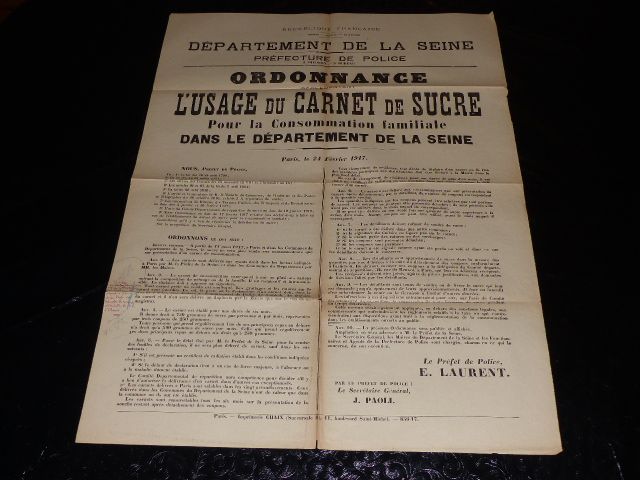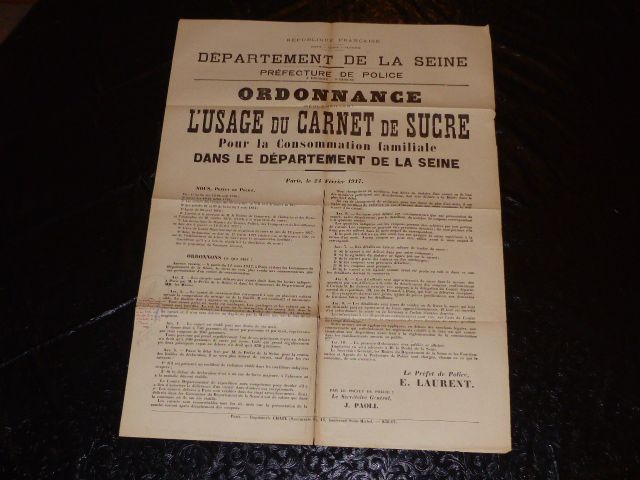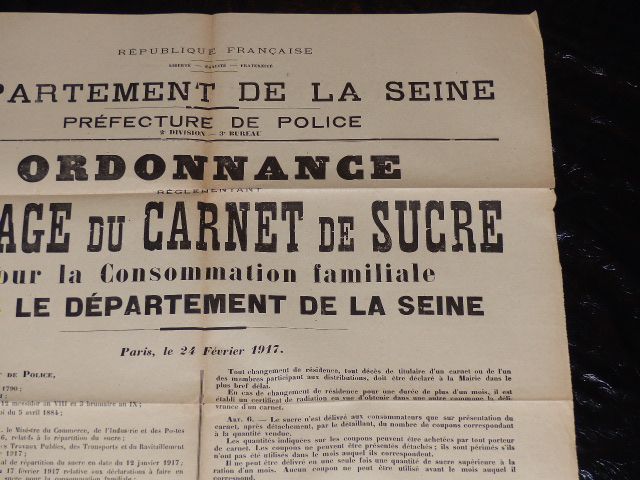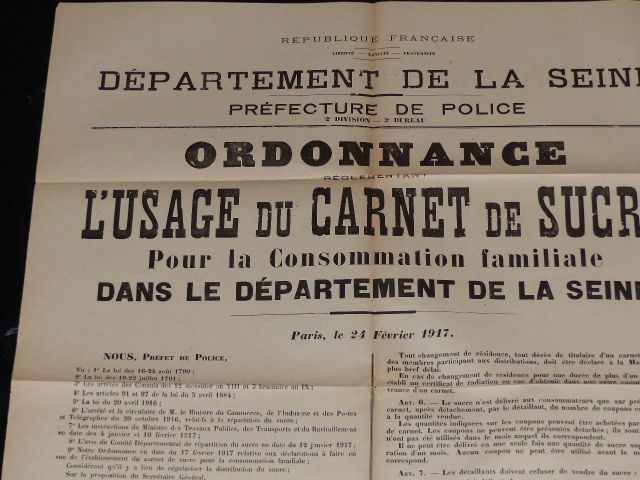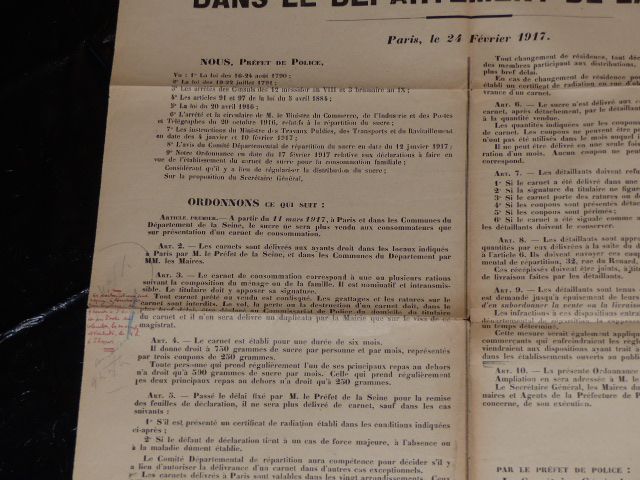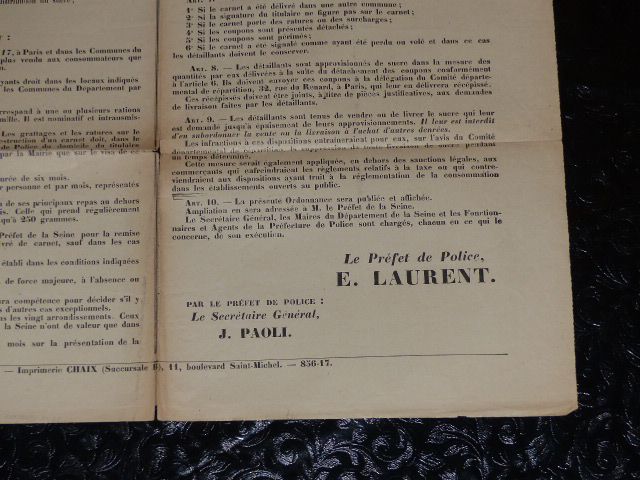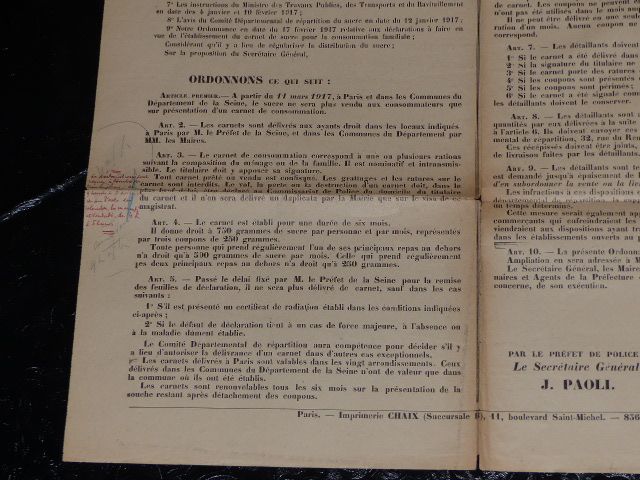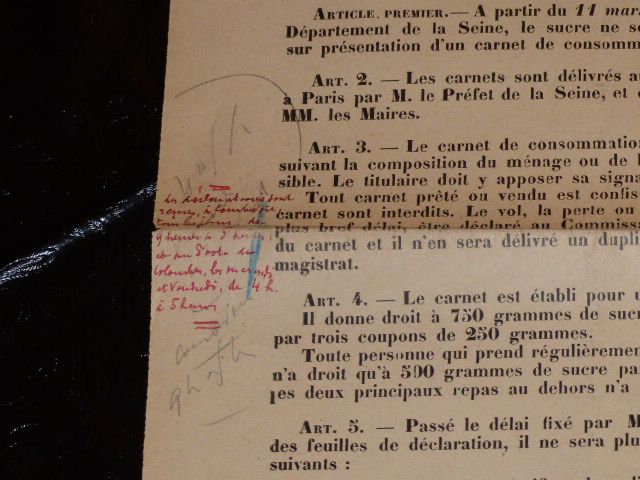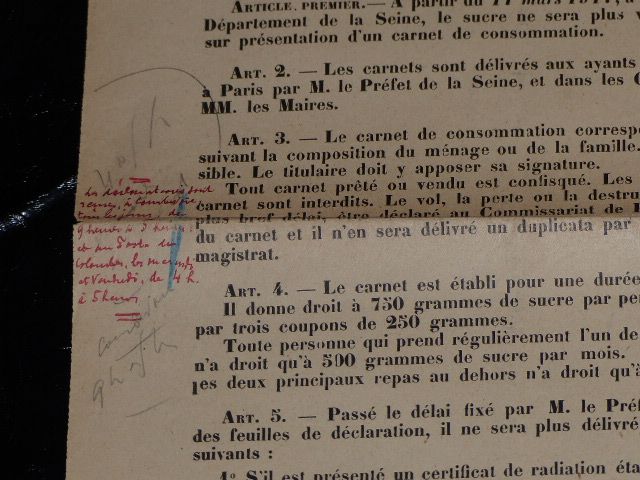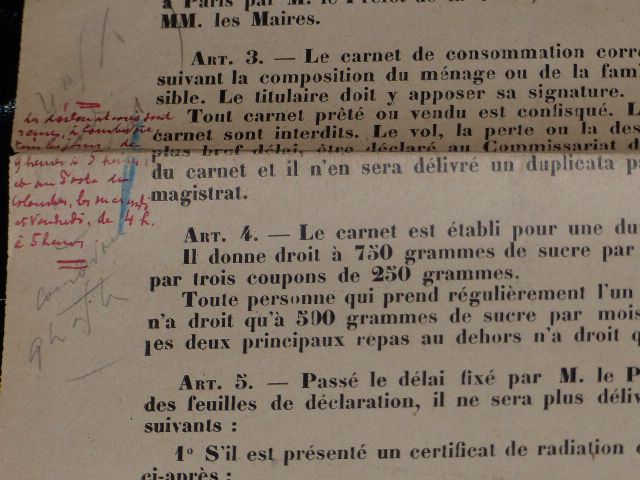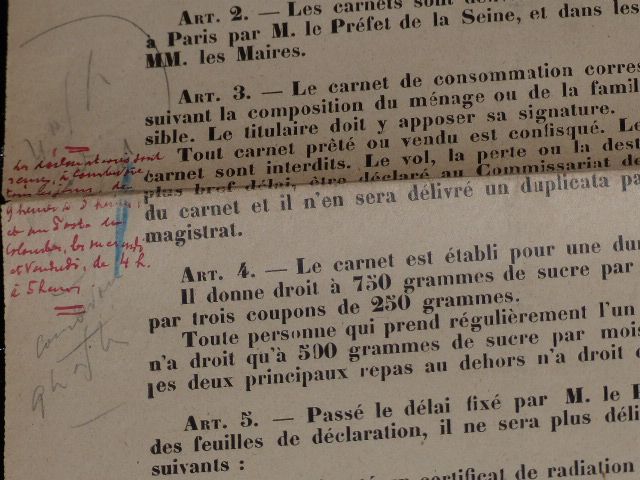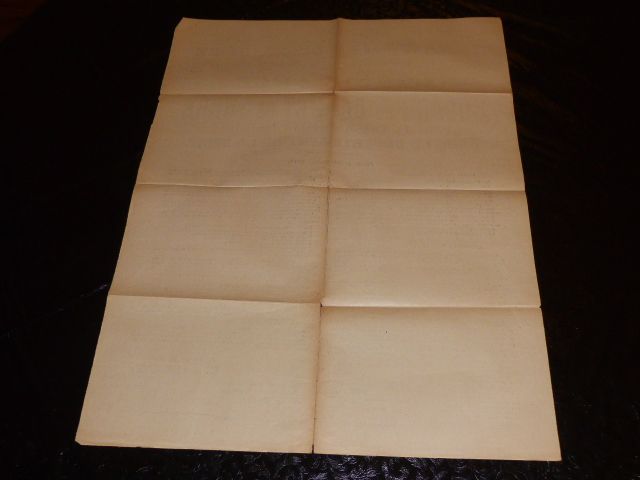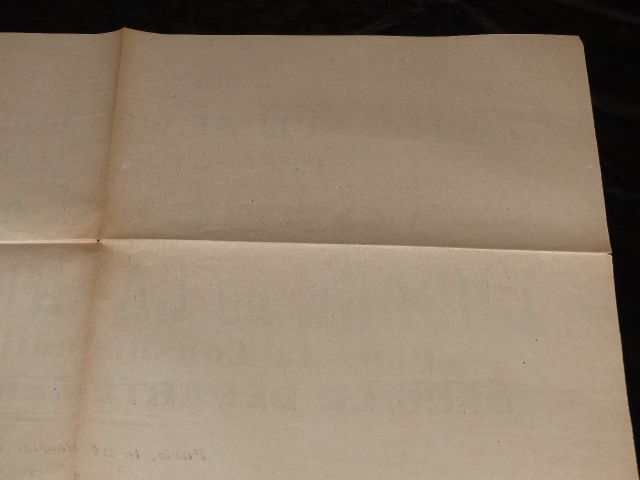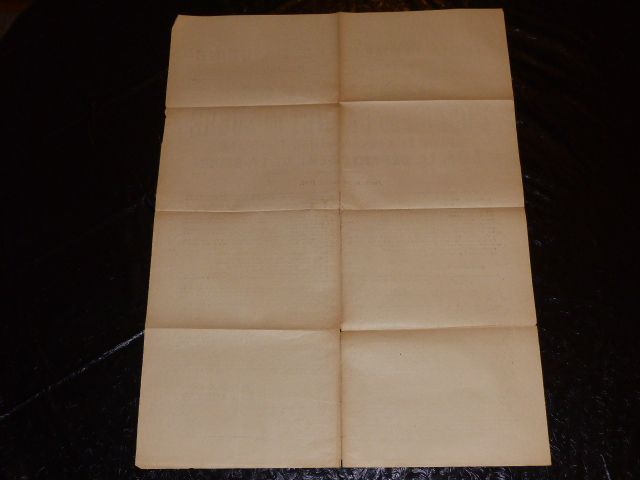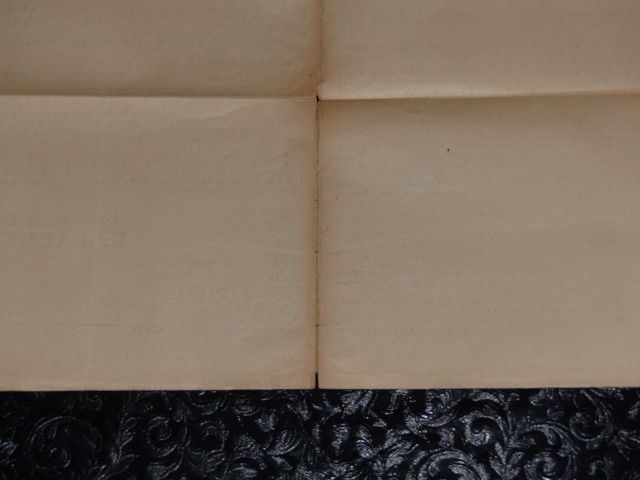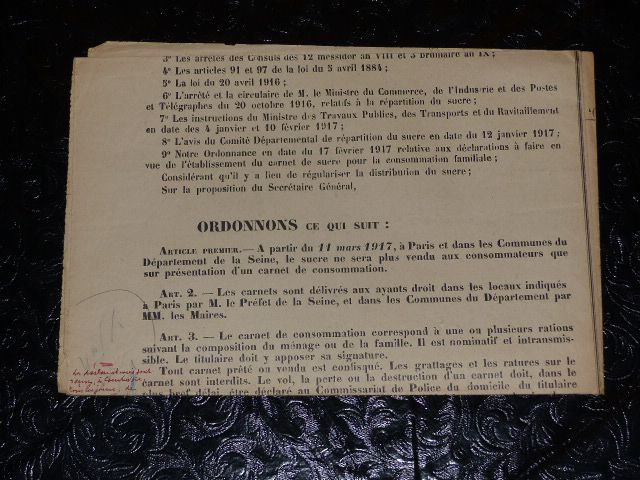[WAR 14-18 - WW1 - DAILY LIFE - RATIONING]
-
[ORIGINAL OLD POSTERS]
Extremely rare
OLD POSTER
Size approximately 75 cm x 56.5 cm
First Printing
Original Edition
First Printing
French Republic - Seine Department
Police Department
2nd division - 3rd office
"Order of February 24, 1917,
regulating the use of the sugar book, for family consumption
in the Seine department"
-
Restrictions and rationing behind the front,
food shortage
On June 15, 1916, summer time was established to reduce energy costs. In 1917, maps of sugar, bread and coal were drawn up. Butchers close 3 days a week. In February 1918, rationing was generalized, each Frenchman received his ration card. Faced with shortages, discontent grows; stores are ransacked. Alongside those who, in the city and in the occupied zone above all, suffer from deprivations,
the “mercantis” speculate and enrich themselves.
At the end of the war, food products were on average twice as expensive as in 1914.
Sugar was rationed until 1921.
The restrictions are due to falling yields; wheat production increases from 68 million quintals
for the period 1909-1913 to 37 million in 1917. The military administration engages in massive purchases;
a third of the equine herd is requisitioned by the armies.
Civilians in the North (2.5 million people) are the most affected; they live under German occupation: gatherings are banned, censorship of the French press, permits are required to travel from one commune to another, etc. They are subject to pillage by the German occupiers.
After the control of production and the taxation of (maximum) prices of current consumer goods
(oil, flour, butter, milk, bread, sugar, etc... ) practiced since 1915, were instituted from 1916-1917, in order to limit abuses linked to the scarcity of products, ration cards and coupon books,
first in Paris then in the provinces.
-
Poster Printed in black
Beautiful typography
Paris, February 24, 1917 - Text signed by E. LAURENT, Prefect of Police
and the general secretary J. PAOLI
856-17 - Paris - Imp. Chaix
Unknown edition
Precious Document
extremely rare!!
Reached us in beautiful condition
A few various small tears on the edges, or small holes on folds
without major gaps
Poster folded in 4, shipped folded
Yellowed paper of course, as always but very healthy
Clean poster, various folds and slight traces of handling inevitable
Annotations in red pen in the margin, as well as blue pencil lines
The Poster does not appear to have been pasted but kept as is,
as a document
see visuals...
-
Poster sold in as-described condition, as found ...
As always, combined shipping costs when purchasing several posters...
